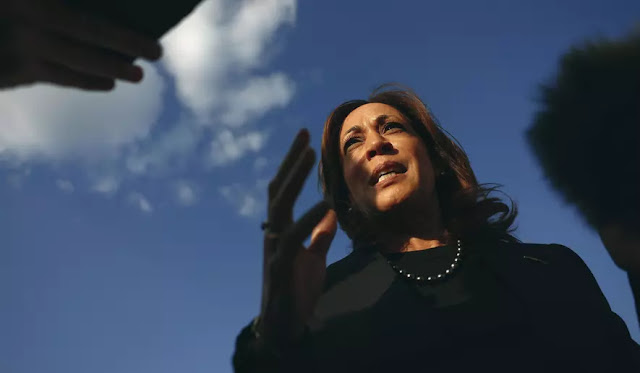Vice President Kamala Harris has focused her anti-inflation agenda on fighting loan sharks,
describing corporations as greedy villains who inflate profits by inflating prices. But economists and even Harris say there is little evidence that price gouging actually occurs. In a plan that is largely devoid of specific details, Harris calls for a federal ban on price gouging and giving the Federal Trade Commission the power to prosecute companies she believes have excessively inflated prices. Former President Donald Trump and Republicans have criticized the plan as "communist" and warned that it would allow the federal government to tell companies how to set prices. Democrats welcomed the announcement, arguing it was an important measure to curb corporate greed that would lead to lower costs for consumers, who have seen food prices rise 21% since Biden took office. Economists say the biggest problem with the plan is the lack of evidence that food prices have risen because food companies and grocers are ripping off consumers. "Harris doesn't have the right policy options to address this issue. She needs a scapegoat to blame for the price rise because the real answer is that it's the (Biden-Harris administration's) policies," said Joshua Hendrickson, an economist at the University of Mississippi. Since proposing the crackdown, Harris has twice acknowledged that the problem is not as widespread as her campaign would have voters believe. She recently told the Congressional Hispanic Caucus that "very few" businesses engage in the practice, a statement she later repeated in an interview with Oprah Winfrey. In July, the New York Fed released a report concluding that rising grocery store prices were due to increased operating costs, not price gouging by companies. Rather, it argued, it was due to a significant increase in the price of agricultural produce and livestock, and higher wages for workers due to labor shortages. Since 2019, food workers' industry wages have increased 15% compared to the food manufacturing sector or the overall workforce, according to the report. A study by the San Francisco Federal Reserve Bank reached a similar conclusion. At the same time, the Government Accountability Office found that a series of supply chain disruptions, including avian influenza, the COVID-19 pandemic, and the war in Ukraine, have increased the food sector's operating costs. The total cost of food production has increased 28.4% since 2020, the Federal Reserve concluded.


Post a Comment